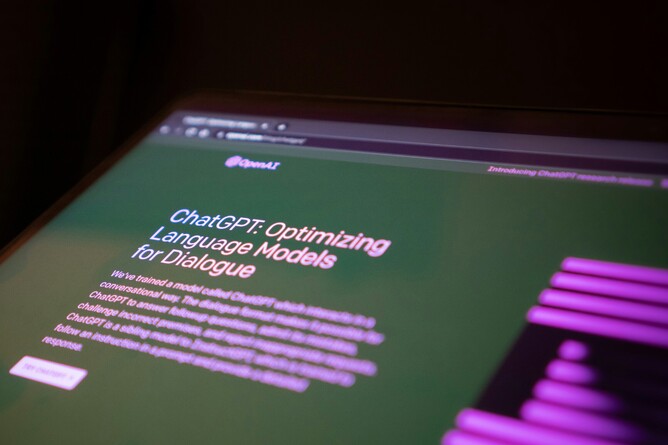Pattrick Smellie, founding editor of BusinessDesk, recently joined HMC managing director Heather Claycomb and senior account manager Kate Webber on the agency’s CRUNCH podcast to discuss changes happening in the media landscape and what they mean for business.
A huge change affecting media has been the rise of AI in the past few years.
Pattrick says, “I do wonder how artificial intelligence is going to affect the media landscape. Our industry is starting to use artificial intelligence, not so much to write news, but to sift large chunks of information.
“I've had enough experience now with ChatGPT to know that it runs out of content at quite regular intervals. So it's basically cherry-picking and stealing information from where it can find it in a very clever way, but sometimes it just isn't up to date.
“So, I don't think that things have changed that much at the moment. Journalists still tend to want to go to primary sources or to quote individual people.”
Stuff announced in March 2024 that they're partnering with Stryker and Microsoft to launch their AI tech pilot program to increase the number of Te Reo Māori articles. This is an interesting use of AI by the media. Pattrick says AI is also affecting how his team works, saving a lot of time on more mundane tasks.
“At BusinessDesk we use an AI engine to write very short news stories, mainly taken from the New Zealand stock exchange for small companies that may not have a lot of investors and may not have a huge amount of interest.
“The key to the way that we get that engine to write those stories, though, is that it only uses the information that's in that release. It doesn't search out into the internet and try to take a view or be clever. It just takes that information and says, ‘I know what a news story is meant to look like,’ so now it looks like a news story.
“Another example of how we’re using AI is that, very shortly, the Government will have all the submissions on the new RMA fast-track legislation being dumped on the parliamentary website on that select committee's page. Normally, I would look at that huge amount of information and determine which two or three of them I should read.
“But if we were to put what we're calling our angle finder over it and say, ‘tell me what are the things that come up all the time and where will I find those references in each of these submissions?’ It's possible. We're still in the early stages of this. It's possible it may actually help us to report much more deeply by making short work of what was previously probably an unachievable task, which is to read hundreds of submissions,” explains Pattrick.
Heather says on the PR side of the fence, “AI has potential to help us create more engaging and meaningful content, which at the moment, in terms of standing out from the crowd, is just super important. So if AI can help us be more creative in how we communicate content, then obviously, that's a positive. It certainly has its place.”
The rise of AI, coupled with the increase in misinformation and disinformation online, could affect how much people trust the media generally.
“I don't think journalists have ever been a massively popular group, but we've become less popular and much less trusted as a result of the rise of disinformation and misinformation because people believe what they want to believe. And if we don't report what they believe, then they think we're part of the plot.
“I don't worry about that too much. I believe you’ve got to trust people not to be collectively, completely stupid,” says Pattrick.
HMC senior account manager Kate Webber believes businesses need to put some safeguards in place due to the increase of misinformation and disinformation.
“I think monitoring online conversations is something that businesses should be doing to identify misinformation and take action early. When I say take action, that doesn't mean engaging with people on social media or fuelling the fire. Action is more about having a pre-planned strategy around how you manage it.
“When misinformation or disinformation arises and you are caught in the thick of it, most often – but not always - you need to respond promptly, be transparent and publicly address concerns.
“What’s essential is not leaving a void of information. If there is chatter going on out there, you need to tell your side of the story or others will fill that void for you,” explains Kate.
Pattrick says it’s much easier for organisations to counter misinformation, disinformation or simply just generally bad news if they have been consistent in using the media to build trust ongoing.
“If you haven't put in the spadework early to be at least understood and hopefully somewhat trusted, then you're starting from well behind the eight ball when a negative situation arises.
“Let’s talk about this frankly for a moment. Media thrives on crisis and discord. It's nothing we like better as an industry than to expose malfeasance or bad actors. What I've seen over and over again is that trust takes forever to create and can be lost overnight,” he says.
Heather agrees, “That’s right. You need to be purposeful in continually building up your trust bank. You need to put ‘good news’ out to the market, because – guaranteed - every single company is going to make a mistake someday. So, you’ve got to build up your trust bank, so that when negative situations arise and you take a ‘withdrawal’, there’s hopefully enough goodwill in the community to get you back on track again quickly.”
This story is an excerpt from Part Two of a two-part episode from HMC’s CRUNCH podcast.
